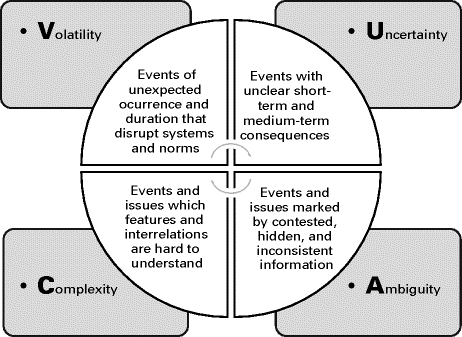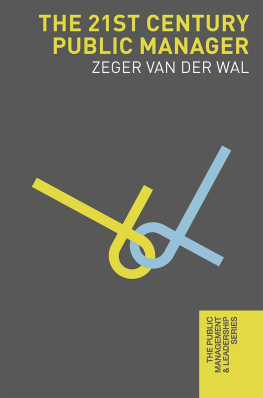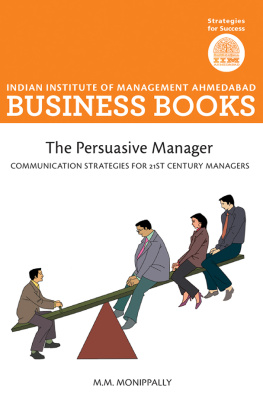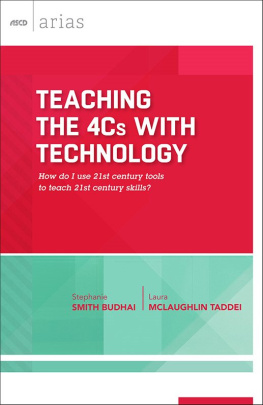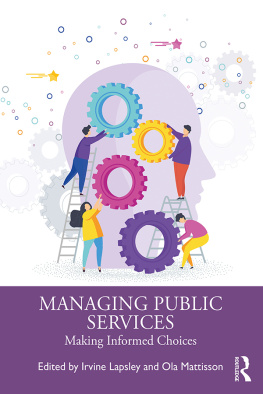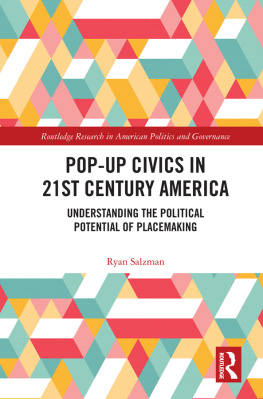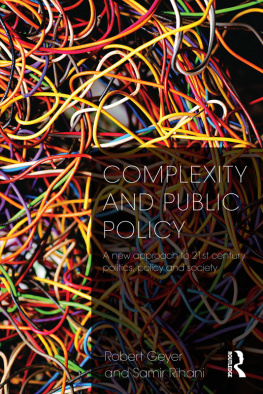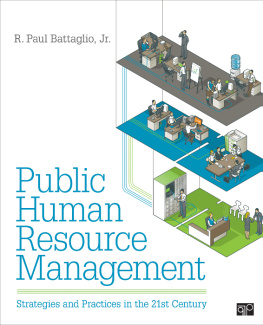1. Introduction
Being a public manager in a VUCA world
Imagine being a manager in a government agency anywhere on this planet. Your average working day consists of many activities. Organizing meetings and setting agendas to discuss progress on policy and service delivery related activities. Enduring tenured senior staff who are unable to keep up with their rapidly changing environment. Guiding junior staff who need to be carefully managed but dont think they do. Explaining to impatient political masters that complex policy decisions cant be reached within a weeks time. Negotiating, communicating, and consulting with stakeholders across sectors on how to jointly design and produce services. Fending off traditional and citizen journalists who scrutinize your performance in catering to a non-stop media environment that feeds off crises and failures.
All these and more may easily fill up your everyday schedule a schedule that you seem unable to control, let alone direct. Surely, being a public manager has never been easy, but it seems to become more challenging all the time. Four key features seem to increasingly characterize your operating environment.
First, more and more often you and your staff members are confronted with, or rather surprised by, disruptive events, scandals, crises, and shocks. The challenges that you face in such situations are not necessarily hard to understand you have even planned and practised for some of them. However, their timing and occurrence are seemingly unexpected and their duration unknown. Due to increased interconnectedness, even small events may trigger other disruptive events and crises. The increased occurrence of such events results in larger volatility .
Second, you are more frequently confronted with sudden leadership transitions that completely change the outlook of policies and programmes you have been working on for months, sometimes years. You usually understand why the transition happened or why it was inevitable, but you lack crucial information about short-term implications and cues on how to proceed. You and your staff want to develop scenarios and actionables but you have to wait for things to unfold. Because of transitions such as these, you experience more uncertainty .
Third, you are increasingly designing and implementing policies collaboratively with a variety of stakeholders, each with their own agenda, worldview, and style. In addition, you have to manage an increasingly diverse workforce, in terms of gender, age, orientation, and background. You proceed based on gut feeling and experience, but you find it hard to effectively engage so many interconnected issues and characters. The increasingly collaborative and intergenerational nature of your work are just two examples of growing complexity .
Fourth, you are pressured to implement innovative and untested new solutions as technologies evolve and tech-savvy citizens demand better service. However, as you pilot and experiment, expectations and potential outcomes are completely unclear. Solution providers, political masters, and end users have different, competing objectives, some of which are unclear or unknown to you. Piloting and experimenting is surrounded with ambiguity .
Taken together, these four examples illustrate how a VUCA world (Johansen ), characterized by volatility, uncertainty, complexity , and ambiguity, will increasingly shape your operating environment. This operating environment will be to some extent unknown, not only in terms of projected outcomes, but also in terms of the required skills, strategies, and parameters. A now famous, but at the time ridiculed, statement by former US Secretary of Defense Donald Rumsfeld at a Pentagon briefing in 2002 nicely captures this feature:
Reports that say that something hasnt happened are always interesting to me because as we know, there are known knowns; there are things we know we know. We also know there are known unknowns; that is to say we know there are some things we dont know. But there are also unknown unknowns the ones we dont know we dont know.
As the four features show, VUCA events vary in terms of containing unknowns. Issues surrounded by volatility and uncertainty are more known, but challenging in their own right. They require a certain degree of flexibility and adaptiveness, together with foresight and strategic planning capabilities. Situations characterized by complexity and ambiguity are least known, requiring experimentation, piloting, and the engagement of unconventional expertise. displays the key characteristics of a VUCA operating environment.
FIGURE 1.1
Characteristics of a VUCA operating environment
Twenty-first century public management: more challenging but also more rewarding?
The features illustrate why your VUCA operating environment will be challenging in various ways. Stakeholders, including new generations of employees, act like expert know-it-alls while demanding authoritative leadership and evidence-based solutions at the same time. Media eagerly portray missteps and scandals while being much less interested in steady progress and small yet important wins. Political masters are so demanding and ambiguous that loyally serving them while preserving your values, motivations, and neutrality is hardly possible. Unlimited technological opportunities and innovations promise the world but far exceed your human and financial capabilities, let alone your procedural and regulatory space. Sounds familiar, doesnt it?
Certainly, the context in which you operate has its own unique constraints and opportunities. Political environments may be more or less stable, bureaucratic influence on policy outcomes more or less considerable, and change and innovation enthusiastically embraced or fiercely opposed. But, wherever you are, you will share many challenges and frustrations with your counterparts across the globe, just as you will share many passions and ambitions. Such passions and ambitions may have been important drivers to join the public sector workforce in the first place, perhaps in an era quite different from the one today, and you must continue to uphold and nurture them to maintain a sense of professional pride and job satisfaction.
However, emerging developments also provide exciting opportunities for achieving unprecedented levels of public service excellence, together with citizens and vanguards of change from other sectors. In order to be an effective 21st century public manager, you will need to acquire and display a variety of skillsets and mindsets to turn various new challenges into immense opportunities.
If you are an aspiring public manager, things will certainly be more challenging by the time you join the managerial ranks of a government agency. At the same time, managing public agencies and policies in the coming decades will be one of the most exciting, interesting, and rewarding activities you can think of regardless of whether youre operating in an emerging megacity, a developing country about to join the ranks of developed countries, or a surprisingly resilient developed welfare state that has been declared dead many times before. The same technological revolutions, assertive stakeholders, and new tech-savvy, entrepreneurial colleagues that produce challenges also create unlimited opportunities for public sector excellence.
